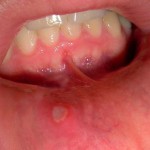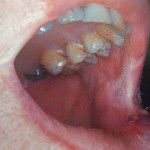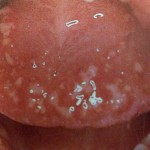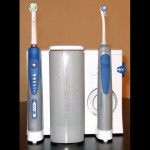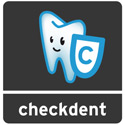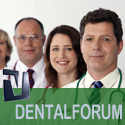Recession of the gums is a very common disease of our time.
Is it periodontosis, periodontitis, or even gingivitis? What is the right treatment?
 Periodontitis: gums recede due to an inflammation in the periodontal apparatus. The correct term for this type of inflammation is periodontitis. The right type of treatment is periodontitis therapy! Simple cleaning is not a form of treatment!
Periodontitis: gums recede due to an inflammation in the periodontal apparatus. The correct term for this type of inflammation is periodontitis. The right type of treatment is periodontitis therapy! Simple cleaning is not a form of treatment!
The periodontal apparatus consists of the tooth root, the periodontal membrane (desmodont), the bone and gums.
If only the gums are inflamed, this is called gingivitis.
Periodontosis is a term falsely used to designate an inflammation of the periodontal apparatus. Due to earlier limitations in technology, it was impossible to isolate bacteria in gum pockets – so it was assumed that there was no inflammation and the disease was given the ending -osis. Periodont means periodontal apparatus, so periodontosis means a recessaion of the periodontal apparatus.
Now we know that this is due to an inflammation caused by bacteria, so it is an -itis.
If your dentist talks about periodontosis, then s/he does not know about the illness or the right type of therapy!


